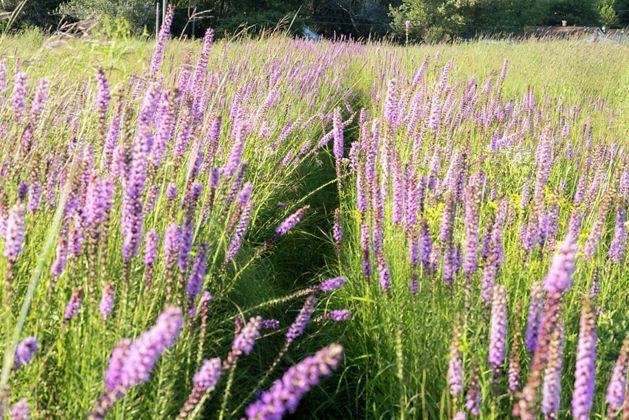YET Internship Connects People to People—And People to Nature
TNC’s Youth Environmental Thinkers (YET) is a summer internship program that encourages youth to consider how communities & nature interconnect.
Developing an understanding of the relationship between people and nature doesn't have to happen on a mountaintop or deep in the woods. For Antoine Stokes, alumni mentor for the Youth Environmental Thinkers (YET) program, it was in a city park that needed some love.

“Our plan was to visit the Garfield Park Conservatory on Chicago’s west side, with a stop at Garfield Park right next door,” he recalls. “When we showed up, we realized that there was a lot of garbage around the park.”
Throughout the six-week paid YET internship, Stokes and other interns learned to pause, reflect and ask questions when faced with environmental challenges or issues, rather than jumping to conclusions.
“We had the opportunity to talk with some people visiting the park,” Stokes explains. “That conversation assisted us in answering the question, ‘What are the circumstances that led to this situation?’ The park visitors told us that there aren't any garbage cans inside the park because of budget issues, so there’s nowhere for people to throw their trash.”
The YET interns then took action, picking up and disposing of the garbage around the park.
And that’s what the YET internship is about: not just visiting natural areas, but visiting neighborhoods or pieces of human history to gain the perspective of people and nature together.

We Can’t Connect Youth to Nature Without You
Sign up to receive monthly conservation news and updates from Illinois.
A New Approach to Conservation?
Could exploring conservation through a lens that values people and nature equitably be a new approach to consider? This idea is at the center of the YET program based at TNC’s Indian Boundary Prairies Preserve. Debra Williams, community engagement specialist for TNC in Illinois, developed the program, which began in 2019, with support from Karl Gnaedinger, the site manager at Indian Boundary Prairies.
“The impetus was being able to work with young people and emphasize that our program is not just a job, but an opportunity for personal development,” Williams says.
The YET program exposes participants to a range of issues, from environmental justice to climate change. They travel to sites around the Chicagoland and engage in presentations and experiences led by well-informed speakers. The interns also participate in weekly stewardship activities led by the stewardship team at Indian Boundary Prairies. Each area of study helps interns see how both peoples’ relationships to nature and environmental challenges impact communities and conservation efforts.
“How the interns engage with one another, in addition to helping them gain an understanding of the connection between people to people and people to nature, are all regularly highlighted,” Williams says. “One of the goals is to share information in a manner that interns can apply wherever they go.”
Providing Leadership Opportunities
YET interns are students from high schools and post-secondary institutions around the country. Titilayo Brown, a senior at Temple University studying environmental studies, acted as the 2023 program assistant, supervised by Debra Williams.
“For me, the program was a really great leadership opportunity,” she says. “We had goals and a theme for each week, and I really learned a lot about myself, just from figuring out what felt important to teach.”






Natural Connections
YET attracts interns with a wide range of interests, from experienced outdoor enthusiasts to those who are visiting and learning about the natural world for the first time. Team-building exercises, paired with the opportunities to visit places like TNC’s Nachusa Grasslands Preserves, make it easy for the participants to connect with Chicagoland’s diverse habitats and wildlife, as well as with each other.
“I went into the internship thinking this is a nature program, so I expected to learn about the environment. We totally did and that was great, but there was so much more devoted to the people aspect of it,” says Charles Roth, a 2023 intern. “After having gone through the program, I see that people and nature really need each other so much and we can't function without each other.”



